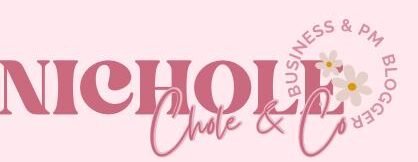Why Breaks Matter
Productivity Recharge and taking breaks during work or study is not merely a luxury; it is a fundamental necessity for maintaining optimal mental and physical health. Research has consistently shown that regular breaks significantly enhance productivity, foster creativity, and improve overall well-being. During prolonged periods of concentration, our brains can become fatigued, leading to diminished focus and cognitive processing. By allowing short intervals for rest, we can refresh our minds, ultimately restoring our mental energy and improving our effectiveness in the tasks at hand.
Moreover, the act of stepping away from work provides an opportunity for physical movement, which is beneficial for our bodies. Sitting for extended periods has been linked to various health issues, including increased risk of cardiovascular disease and musculoskeletal problems. Breaks encourage individuals to stretch, walk, or engage in other forms of physical activity, promoting better circulation and reducing tension in muscles. This shift not only revitalises the physical state but also enhances mental alertness, leading to better problem-solving abilities and innovative thinking.
Another crucial aspect of taking breaks is the prevention of burnout, which is increasingly recognised in fast-paced work environments. When individuals do not allocate time for rest and reflection, the risk of emotional exhaustion escalates. Scheduling regular breaks helps maintain mental agility and resilience, empowering individuals to cope with challenges more effectively. Furthermore, such intermissions can inspire moments of insight, where new ideas emerge, fostering a more dynamic approach to work.
In summary, taking breaks is essential for recharging both the mind and body. By integrating thoughtful pauses into our routines, we can significantly enhance our focus, creativity, and overall health, thereby mitigating the risks of burnout and promoting sustained productivity over time.
Table of Contents
How to Take Effective Breaks
To enhance productivity, it is essential to incorporate effective breaks throughout the workday. Short breaks, lasting around five minutes, are an excellent starting point. These brief pauses allow for a quick mental reset, helping to alleviate fatigue and boost focus for the tasks ahead. During these short breaks, consider stepping away from your workstation to stretch, hydrate, or perform a few simple breathing exercises. Such activities can reinvigorate the mind, leading to increased concentration upon returning to work.
In addition to short breaks, engaging in creative downtime activities can provide substantial benefits. Activities such as walking outside or practising mindfulness through meditation serve as excellent ways to decompress. Walking, in particular, not only facilitates physical movement but can also stimulate creative thinking and problem-solving skills. By allowing the mind to wander, fresh ideas often emerge. Conversely, taking a few minutes for meditation promotes mental clarity and reduces stress, fostering a more conducive work environment.
Another critical aspect of effective breaks is ensuring designated distraction-free lunch periods. Consuming meals at your desk can blur the lines between work and personal time, ultimately leading to decreased productivity. Instead, aim to step away from your desk, enjoy your meal mindfully, and take this time to recharge both physically and mentally. This intention-crafted break can significantly enhance focus and rejuvenation levels throughout the day. By integrating these various types of breaks thoughtfully into your daily schedule, you set yourself up for better performance and improved overall well-being. Prioritising breaks not only fosters productivity but also contributes to a more balanced and enjoyable work experience.
https://cholecopartnerships.com/productivity-booster-9-great-tips/nb/: Productivity Recharge: 10 Most Effective Tips on the Importance of Taking BreaksShort Breaks: The Power of 5-Minute Pauses
In today’s fast-paced work environment, the importance of short breaks cannot be overstated. Taking just five minutes to step away from your workstation each hour can dramatically enhance overall productivity and well-being. These brief pauses serve not only as a reprieve from continuous mental exertion but also as an opportunity to revitalise your focus and energy levels.
During these five-minute breaks, engaging in simple activities can make a significant difference. For instance, stretching exercises can alleviate physical tension that builds up from prolonged sitting, thereby promoting better posture and reducing discomfort. Spending a few moments to stretch your arms, legs, and back allows blood circulation to improve and prepares your body for the tasks ahead.
Additionally, integrating breathing exercises into your short breaks can further amplify the benefits. Practising deep breathing techniques for just a few minutes can help lower stress levels and enhance cognitive clarity. Simple methods such as inhaling deeply for a count of four, holding the breath for four, and exhaling slowly can create a refreshing mental reset.
Other quick yet effective activities include stepping outside for fresh air or indulging in a brief mindfulness or meditation session. These actions not only provide a mental distraction but also help clear the mind, fostering a renewed sense of focus when returning to work. Whether taking a short walk, sipping a cup of water, or simply gazing out the window, the key is to engage in something that disconnects you from your immediate work environment.
The practice of taking regular, short breaks ultimately empowers individuals to enhance their overall productivity and sustain energy throughout the day. By recognising the benefits of these five-minute pauses, we can develop healthier work habits that contribute to long-term success and satisfaction.
Creative Downtime: Engaging Activities That Spark Creativity
In the pursuit of productivity, it is essential to recognise the value of engaging in creative activities during breaks. These activities serve as a powerful tool for stimulating creative thinking and can significantly enhance overall performance. One effective form of creative downtime is simply taking a walk. Studies have shown that walking, especially in natural settings, can lead to increased levels of divergent thinking, a cognitive process associated with generating creative ideas. This is due to the combination of physical movement and exposure to the outdoors, both of which help to refresh the mind and allow ideas to flow more freely.
Another beneficial activity during breaks is meditation. This practice encourages mindfulness and helps in clearing mental clutter, allowing one to focus better afterwards. Meditation facilitates a deeper connection with one’s thoughts and feelings, which can lead to innovative ideas emerging more easily. The key to successful meditation lies in consistency; incorporating brief sessions into daily routines can significantly enhance creative mental states over time.
To maximise the benefits of these engaging activities, it is essential to prioritise the duration and environment in which they occur. Aim for at least 10-15 minutes of either walking or meditative practice during your breaks. It is also advisable to create a conducive atmosphere that promotes relaxation and creativity. For instance, walking in a park or a quiet area can elevate the experience, while finding a serene spot for meditation with minimal distractions can enhance focus and mindfulness.
Ultimately, integrating creative downtime into your routine can stimulate fresh ideas and enhance productivity. By embracing such activities, individuals can recharge their minds, promote innovative thinking, and maintain a balanced approach to work and creativity.
The Importance of Lunch Breaks
Taking a proper lunch break is essential for maintaining overall productivity and well-being in the workplace. While many individuals tend to overlook or rush through this crucial time, dedicating a portion of the day to step away from work can yield significant benefits. During a lunch break, the body and mind have the opportunity to recharge, ensuring a more focused and efficient afternoon.
Mindful eating is a fundamental aspect of a fulfilling lunch break. When we take the time to eat without distractions—such as phones, emails, or work-related discussions—we engage more with our meals. This practice allows us to appreciate our food, listen to our bodies, and recognise hunger and fullness cues. As a result, mindful eating has been shown to improve digestion, increase satisfaction, and lead to healthier food choices, ultimately contributing to better overall health.
Moreover, stepping away from the desk can foster creativity and problem-solving skills. Allowing our minds a temporary break from routine tasks encourages fresh thinking and new perspectives. Engaging in conversation with colleagues or enjoying a serene walk outside during lunchtime can stimulate ideas that may otherwise remain dormant during monotonous work hours. This break from the usual work environment promotes mental clarity and revitalises our ability to tackle challenges effectively.
Additionally, regular lunch breaks can help mitigate stress and prevent burnout. The fast-paced nature of modern work often results in employees feeling overwhelmed. Taking time to disconnect—even for a brief period—can provide much-needed relief. A nutritious lunch, combined with an opportunity to relax and recharge, significantly enhances overall morale and job satisfaction. Thus, prioritising lunch breaks is not merely a personal choice but a professional necessity for optimal performance in the workplace.
Tools to Schedule Breaks Effectively
Managing productivity effectively necessitates regular breaks. There are various techniques and tools available that can assist individuals in scheduling these vital pauses. One of the most popular methods is the Pomodoro Technique. This technique involves working for 25 minutes, known as a “Pomodoro,” followed by a five-minute break. After completing four Pomodoros, a longer break of 15 to 30 minutes is taken. This structured approach not only enhances concentration and productivity but also helps in reducing mental fatigue. Various applications are available, such as Tomato Timer and Focus Booster, that provide timers and notifications to facilitate this method seamlessly.
Mindfulness apps, such as Headspace and Calm, have emerged as effective tools for scheduling breaks. These applications guide users through short mindfulness exercises and meditations, allowing for mental reprieve from work stresses. Users can set reminders for these breaks, incorporating mindfulness into their daily routines. Engaging in deep breathing exercises or brief meditations can rejuvenate the mind, thereby enhancing overall focus and productivity upon returning to tasks.
Another notable tool is Stretchly, which is designed specifically to remind users to take breaks. This application offers customisable notifications for short breaks and longer pauses, ensuring that physical movement is incorporated into daily work routines. Stretching and moving around regularly can help combat the negative effects of prolonged sitting, promoting better health alongside productivity.
Incorporating these tools—whether through structured techniques like Pomodoro, mindfulness applications, or reminder tools such as Stretchly—effectively supports the practice of regular breaks. Each of these resources aims to create a balanced approach to work, enhancing not only productivity but also overall well-being.
Benefits of Breaks on Focus and Productivity
Taking regular breaks during work or study sessions can significantly enhance focus and productivity. It might seem counterintuitive, but when individuals step away from their tasks, they often return with increased energy levels and sharper concentration. This phenomenon can be attributed to several factors, including cognitive recovery and stress relief. When engaged in prolonged periods of work, the brain can become fatigued, leading to diminished attention spans and creative thinking. Conversely, short intervals away from tasks allow the brain to rest and recuperate, essentially recharging cognitive faculties for enhanced performance.
Research indicates that taking breaks can lead to better memory retention and improved problem-solving skills. This is because stepping away from a challenge allows the mind to process information subconsciously. For example, the “incubation effect” suggests that temporarily disengaging from a problem can yield fresh insights upon return, improving overall productivity. Moreover, breaks foster a more balanced state of mind, which is essential for maintaining motivation and avoiding burnout. Frequent rest periods, whether brief or more extended, can help mitigate feelings of stress and overwhelm, further fostering a productive environment.
Incorporating minor breaks throughout one’s daily schedule can be as simple as standing up to stretch, taking a short walk, or engaging in brief mindfulness exercises. These actions not only provide a symbolic shift away from work but also stimulate physical and mental refreshment. The simple act of creating space for recovery can deliver profound benefits, including heightened focus, increased energy levels, and a boost in overall productivity. Ultimately, recognising the importance of such breaks can lead to a more dynamic and effective approach to work and learning.
Creativity Boost: How Breaks Lead to Innovative Ideas
The significance of taking breaks cannot be overstated. Numerous studies suggest that regular downtime can substantially enhance creativity and foster innovative thinking. When engaged in demanding tasks without interruption, mental fatigue can occur, leading to diminished cognitive functions. Conversely, brief respites from work allow the brain to reset, promoting heightened levels of creativity.
Breaks facilitate what is known as “incubation,” a process where the subconscious mind continues to work on problems even after active focus has shifted. For instance, individuals often report experiencing sudden bursts of innovative ideas while performing mundane tasks, such as taking a shower or taking a walk. This trend highlights the importance of stepping back from a challenging problem, allowing the mind the necessary space to explore creative solutions. Functioning under pressure often confines individuals to rigid thought patterns; however, a break may stimulate divergent thinking, critical for innovative breakthroughs.
Additionally, anecdotal evidence from numerous successful inventors and artists supports this concept. For instance, renowned physicist Albert Einstein often took long walks to clear his mind, during which he would formulate theories. Similarly, the late Steve Jobs utilised regular periods of meditation to enhance his creative thought processes, paving the way for groundbreaking advancements in technology. These examples demonstrate that creativity thrives when the mind is allowed to wander, unconstrained by deadlines and societal expectations.
Incorporating structured breaks into one’s work routine not only combats mental burnout but also empowers individuals to think outside of conventional frameworks. Ultimately, the relationship between taking breaks and enhancing creativity is substantiated by both scientific research and practical experiences, resonating across various professional fields. Embracing this essential practice holds the potential for transformative innovative ideas and solutions.
Well-Being: Reducing Stress Through Breaks
The relationship between regular breaks and overall well-being is becoming increasingly recognised in both personal and professional contexts. Taking breaks from work or routine activities offers a significant opportunity to recharge, ultimately leading to reduced stress levels. When individuals engage in uninterrupted tasks for extended periods, mental fatigue begins to set in, which can contribute to feelings of overwhelm and anxiety. By incorporating regular intervals of rest into one’s schedule, it is possible to mitigate these stressors effectively.
Frequent breaks foster an environment where individuals can step away from tasks and refocus their thoughts. This practice promotes a better balance between work and personal life. When employees or students allow themselves to detach mentally from their responsibilities, they create space for creativity, reflection, and rejuvenation. For example, a brief walk outside or a moment spent engaging with colleagues can shift the mind’s focus and elevate mood significantly. Enhanced mental clarity is often a direct benefit of taking such breaks, which can lead to more productive outcomes when returning to work.
Moreover, regular intervals of rest contribute positively to mental health by lowering the risk of burnout. Continuous engagement without breaks can lead to exhaustion, affecting not only work performance but also personal relationships and overall life satisfaction. Establishing a rhythm that includes dedicated time for breaks is fundamentally linked to promoting well-being. Therefore, prioritising time away from duties, even in small increments, can enhance emotional resilience and overall life satisfaction.
In conclusion, integrating regular breaks into daily routines is an essential component of stress reduction and enhanced mental health. As understanding of this principle grows, it is crucial for individuals and organisations alike to recognise the value of taking time off to improve productivity and overall well-being.
If you would like to discuss this article further, connect with me over here 😃
THE AUTHOR
Nichole Brown.
Nichole Brown is a Content Writer with 4+ years of experience as a contributor who loves to share helpful content with others. When she’s not writing, Nichole enjoys travelling and learning foreign languages. Follow her on LinkedIn
Uncover a realm of opportunities.
Exploring life’s complex tapestry, options reveal routes to the exceptional, requiring innovation, inquisitiveness, and bravery for a deeply satisfying voyage.


Take a hike and wAnder through the woods
-
Finding Your Niche: How to Choose a Profitable Niche
Finding Your Niche
-
Finding Your ‘Why’: The Driving Force Behind Your Business Success
Finding Your ‘Why’:
-
Transforming Your Reality: How Limiting Beliefs Keep You Stuck (And How to Break Free)
Transforming Your Reality:
-
Automated Systems: Grow Your Business While You Sleep
Automated Systems
-
Affiliate Marketing: The Ultimate Guide including Strategies for Success
Affiliate Marketing

